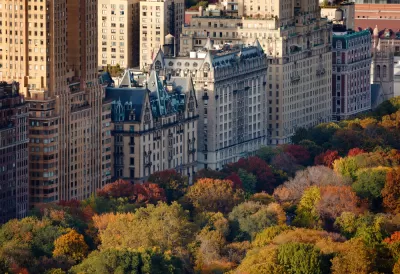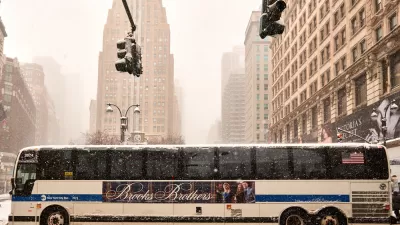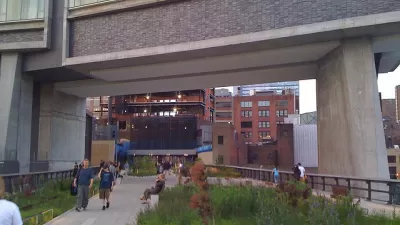The Upper West Side of Manhattan is embroiled in controversy as local residents react badly to at-risk New Yorkers being housed in a local hotel for safety during the pandemic.

"The Lucerne Hotel at 201 West 79th Street will be used to house 283 homeless people who have been staying at shelters downtown, as a way to reduce the population at those shelters so there is less of a Covid-19 risk," according to an article published by the West Side Rag on July 24.
That news came from an email sent to constituents from New York City Councilmember Helen Rosenthal. A few days later, the use of the hotel to house men from project Renew had erupted in controversy, as reported in a separate article by Jacob Rose, published on July 27.
"Shortly after groups of homeless men began to arrive by bus on Monday morning [July 27] to their new living quarters at The Lucerne Hotel on 79th Street and Amsterdam Avenue, Councilmember Helen Rosenthal showed up in a car, and was soon surrounded by locals," reports Rose.
Project Renew has been having trouble finding places for these at-risk men to stay during the pandemic. "The men were residents of two East Village shelters run by a nonprofit called Project Renewal that helps people recovering from drug abuse. Some of the men had already been moved to a hotel on West 51st Street — but conflict between shelter residents and their neighbors caused them to be moved again, one shelter resident who calls himself Da Homeless Hero told West Side Rag," according to Rose in the article from July 27.
The articles and the comments on both the articles are full of comments from local residents expressing concerns about the population of vulnerable New Yorkers living in the midst.
FULL STORY: Locals Express Frustration and Confront Councilmember as Hotel Becomes Homeless Shelter

Alabama: Trump Terminates Settlements for Black Communities Harmed By Raw Sewage
Trump deemed the landmark civil rights agreement “illegal DEI and environmental justice policy.”

Study: Maui’s Plan to Convert Vacation Rentals to Long-Term Housing Could Cause Nearly $1 Billion Economic Loss
The plan would reduce visitor accommodation by 25% resulting in 1,900 jobs lost.

Why Should We Subsidize Public Transportation?
Many public transit agencies face financial stress due to rising costs, declining fare revenue, and declining subsidies. Transit advocates must provide a strong business case for increasing public transit funding.

Wind Energy on the Rise Despite Federal Policy Reversal
The Trump administration is revoking federal support for renewable energy, but demand for new projects continues unabated.

Passengers Flock to Caltrain After Electrification
The new electric trains are running faster and more reliably, leading to strong ridership growth on the Bay Area rail system.

Texas Churches Rally Behind ‘Yes in God’s Back Yard’ Legislation
Religious leaders want the state to reduce zoning regulations to streamline leasing church-owned land to housing developers.
Urban Design for Planners 1: Software Tools
This six-course series explores essential urban design concepts using open source software and equips planners with the tools they need to participate fully in the urban design process.
Planning for Universal Design
Learn the tools for implementing Universal Design in planning regulations.
Caltrans
Smith Gee Studio
Institute for Housing and Urban Development Studies (IHS)
City of Grandview
Harvard GSD Executive Education
Toledo-Lucas County Plan Commissions
Salt Lake City
NYU Wagner Graduate School of Public Service





























